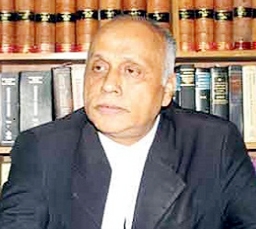
Md Khurshid Alam Khan :
In the case of Begum Khaleda Zia Vs. State and another reported in 19 BLC 398 it has been held that though there was an application under section 241A of the Code of Criminal Procedure but that was not considered and the learned Judge rejected the same on the ground that the learned advocate for the accused-petitioner did not move the application. In Special Case No. 5 of 2013 there was no application under section 241A of the Code of Criminal Procedure rather from the order sheet it is found that after framing charge, learned advocate for the accused-petitioner filed an application under section 241A of the Code of Criminal Procedure. It is true that exercise of sections 241A and 242 of the Code of Criminal Procedure are independent of any application, but on perusal of the impugned orders, it cannot be said that the Court below did not comply with the provisions of sections 241A and 242 of the Code of Criminal Procedure. Both sections 241A and 242 of the Code should be read together. This view has been affirmed by the Appellate Division as referred above i.e. 21 BLC (AD) 16 and 21 BLC (AD) 151.
In the case of Habibur Rahman Vs. Md. Showkat Ali and others reported in 24 BLC (HD) (2019) 906 it has been repeatedly held that there is no scope to discharge the accused at the time of charge hearing accepting the prosecution version when prima-facie case is disclosed. The disputed question of facts, the defense version of the accused, defense materials and prima-face case only be proved/disproved/ discarded at the time of trial by taking evidences.
It has been further held that at the time of charge hearing (sections 241A and 242 Cr. P.C. ) the Judge is to see whether the allegations in the petition of complaint constitutes prima-facie offence as alleged but the court below without giving the complainant any opportunity to adduce any evidence to prove the allegations has discharged the accused.
In the case of Anti Corruption Commission Vs. The State and another reported in 25 BLC (HD) 29 it has been held that the Anti Corruption Commission being prosecuting agency may submit charge-sheet following the allegations made in the FIR if it finds prima-facie case against the accused. But it has no right to resolve any dispute alleged by the accused. The accused has every right and authority to produce his/her defence materials before the court during trial of the case. Moreover, there is no provision of submitting any application before the investigating officer for making reassessment of the allegations, liabilities, expenditures and costs of construction of house. There is an ample scope for the accused to explain about the allegations and rectify the mistake in calculating assets, even if any, at the time of trial as required under section 27(1) of the Anti-Corruption Commission Act, 2004. Besides, the prosecution must also be given opportunity to prove the allegations by adducing evidence before the trial court.
Be that as it may, going through the prosecution materials on record, we are of the view that a prima-facie case with regard to offences under sections 26(2) and 27(1) of the Anti-Corruption Commission Act, 2004 has been disclosed against the accused. The allegations so brought against the accused are highly disputed question of facts which cannot be resolved without taking aid of the evidence to be adduced by the parties before the trial court. The High Court Division relied upon in the case of Moudud Ahmed Vs. State, reported in 16 BLD (AD) 27=48 DLR (AD) 42; in the case of Taher Hossain Vs. State reported in 7 BLC (AD) 45 and in the case of Nazrul Islam Vs. State reported in 50 DLR 103 it was spelt out that the learned trial judge may frame charge against an accused under section 242 of the Code of Criminal Procedure if there are sufficient prosecution materials on record to frame charge against an accused. It is true that the charge cannot be framed against the accused-person mechanically unless any reasonable and cogent prima-facie case is disclosed against the accused in the FIR as well as in the charge-sheet and in other prosecution materials.
— To Be Continued.
(Md Khurshid Alam Khan is Advocate, Supreme Court, and Editor, Dhaka Law Reports).

